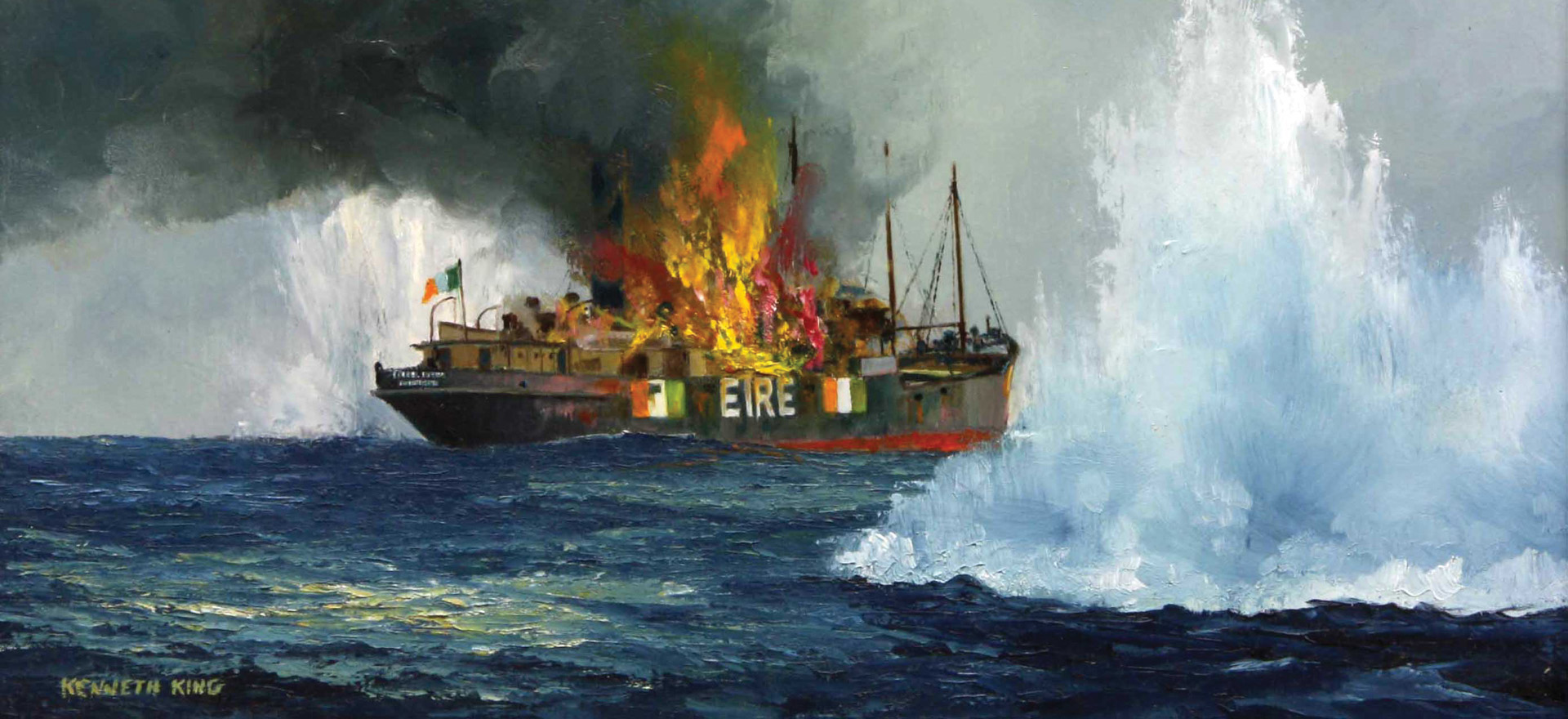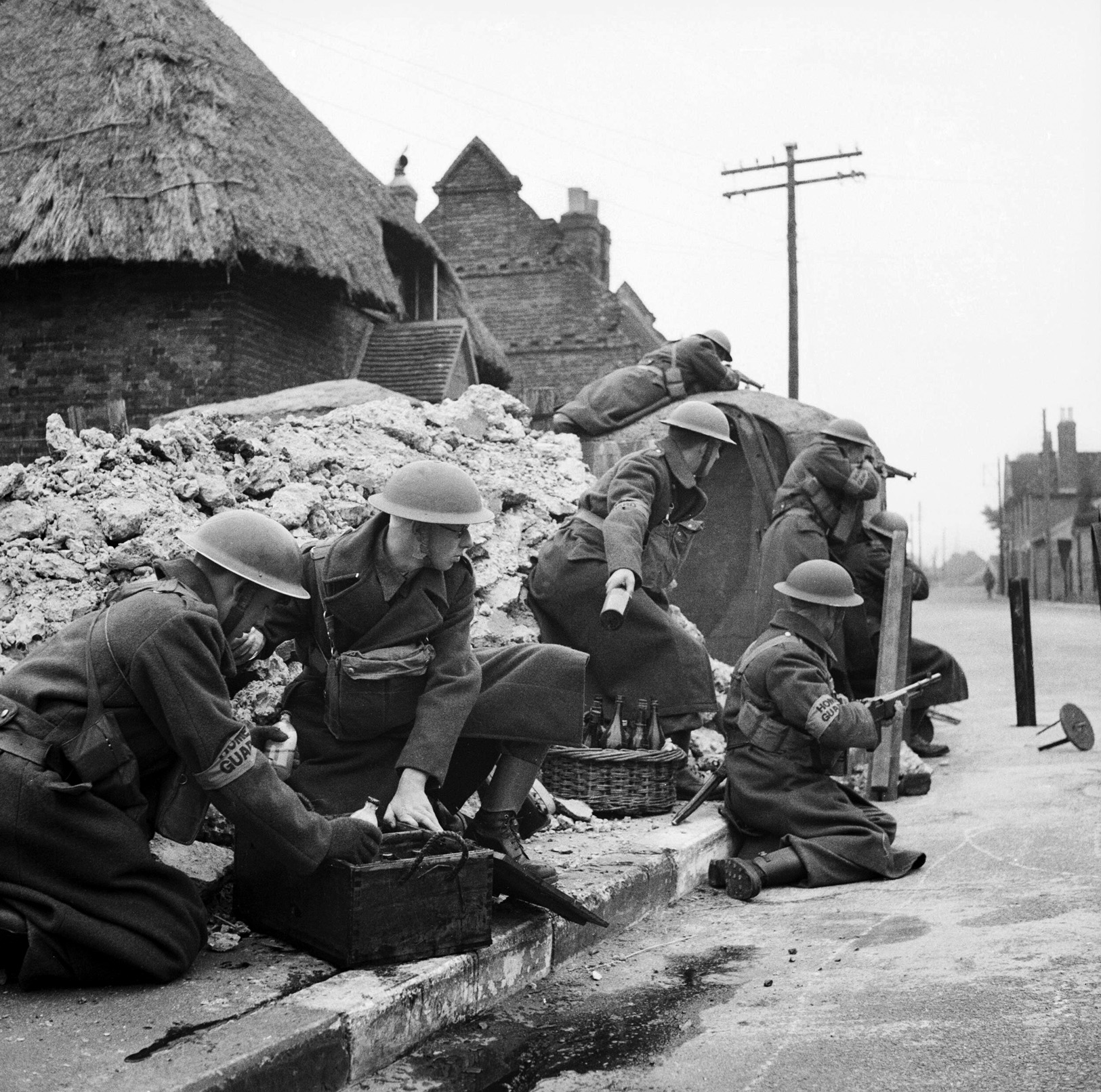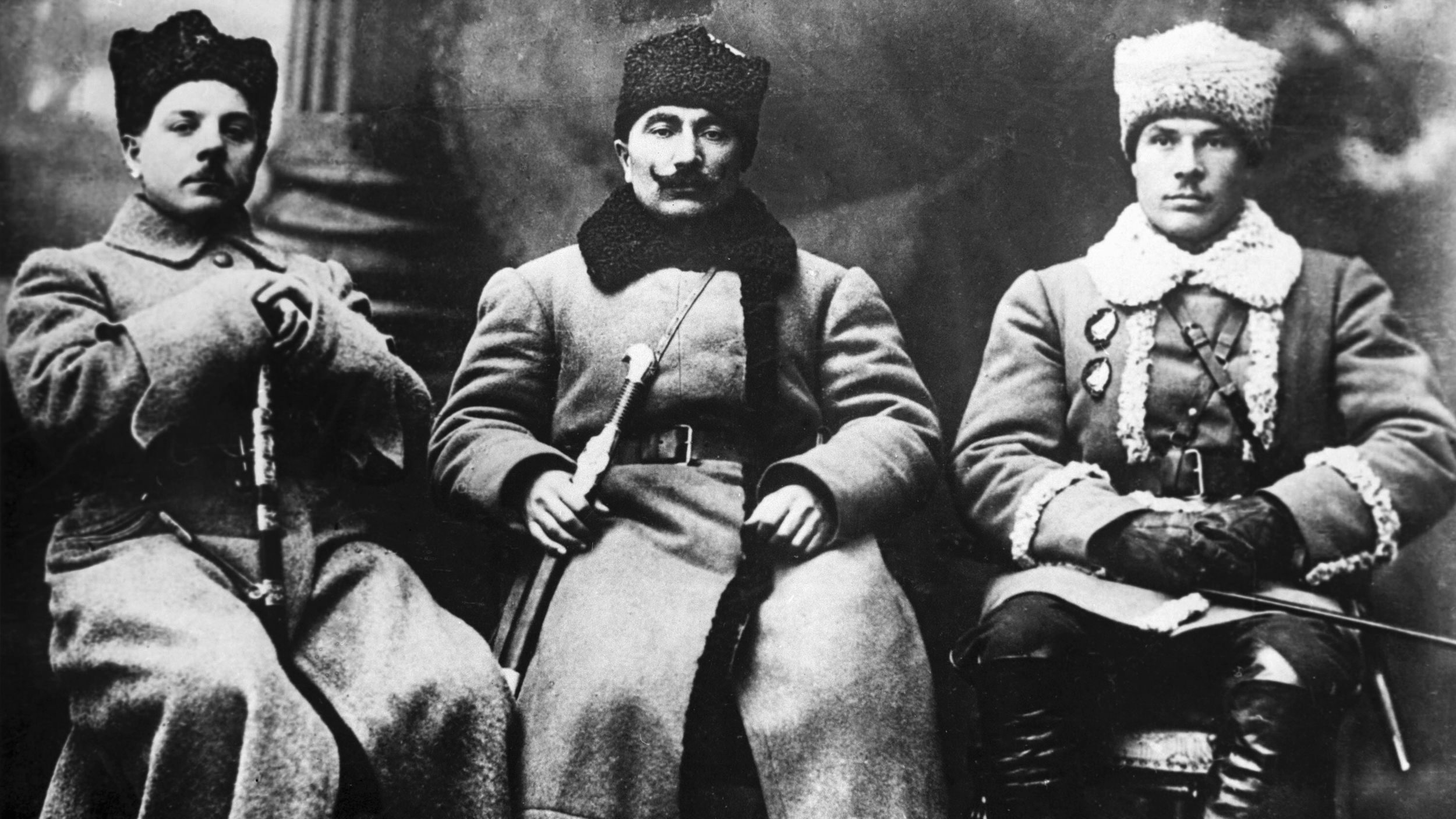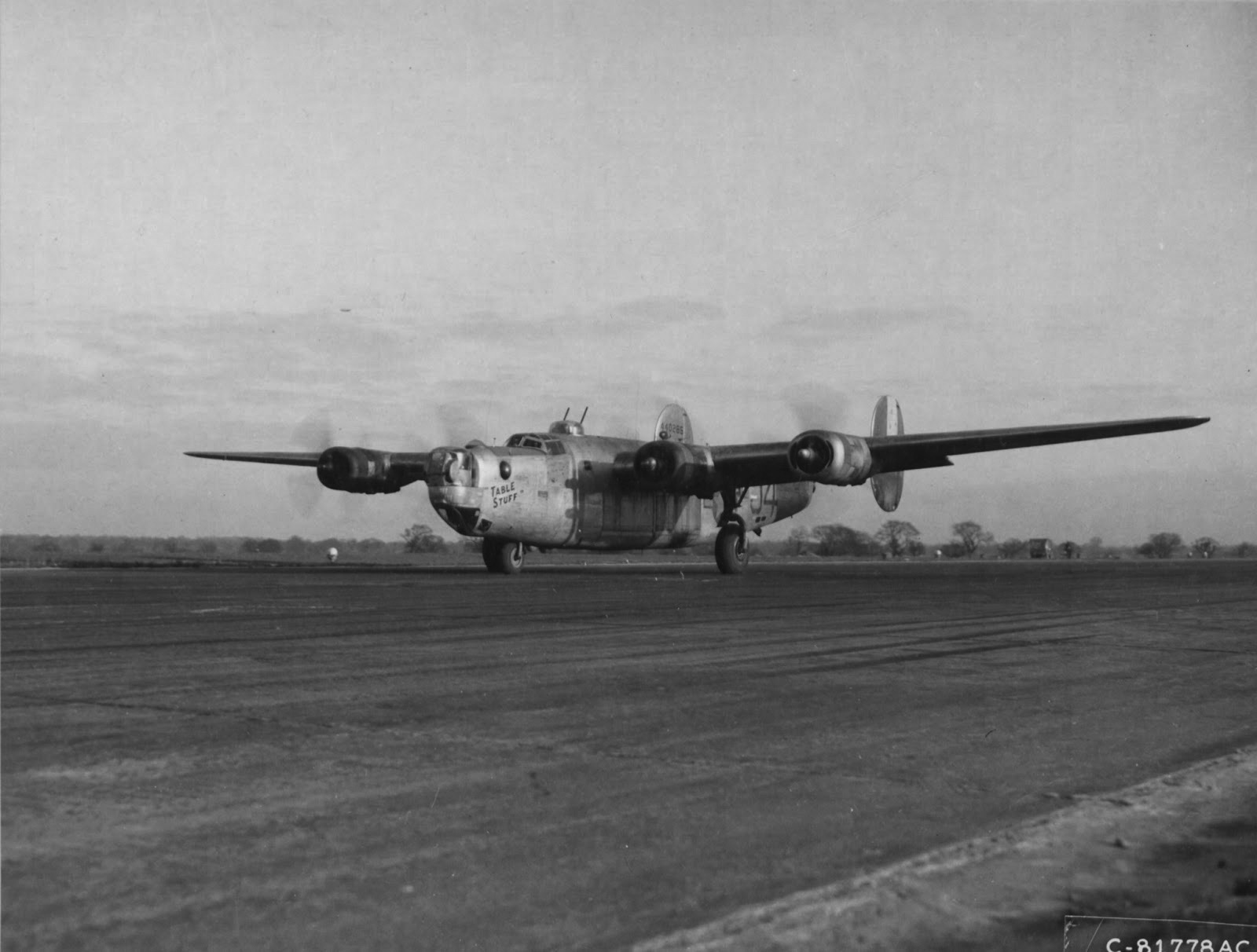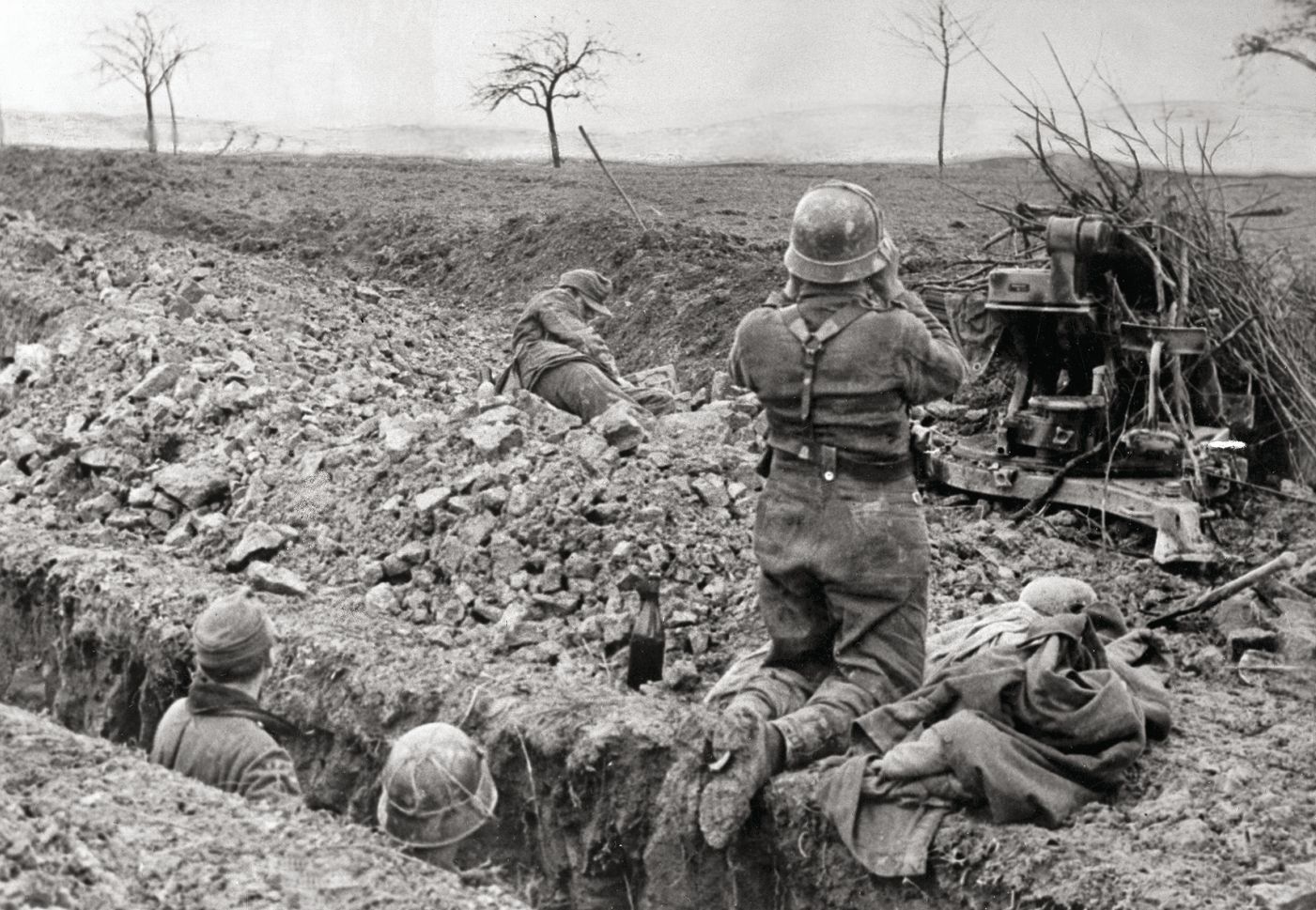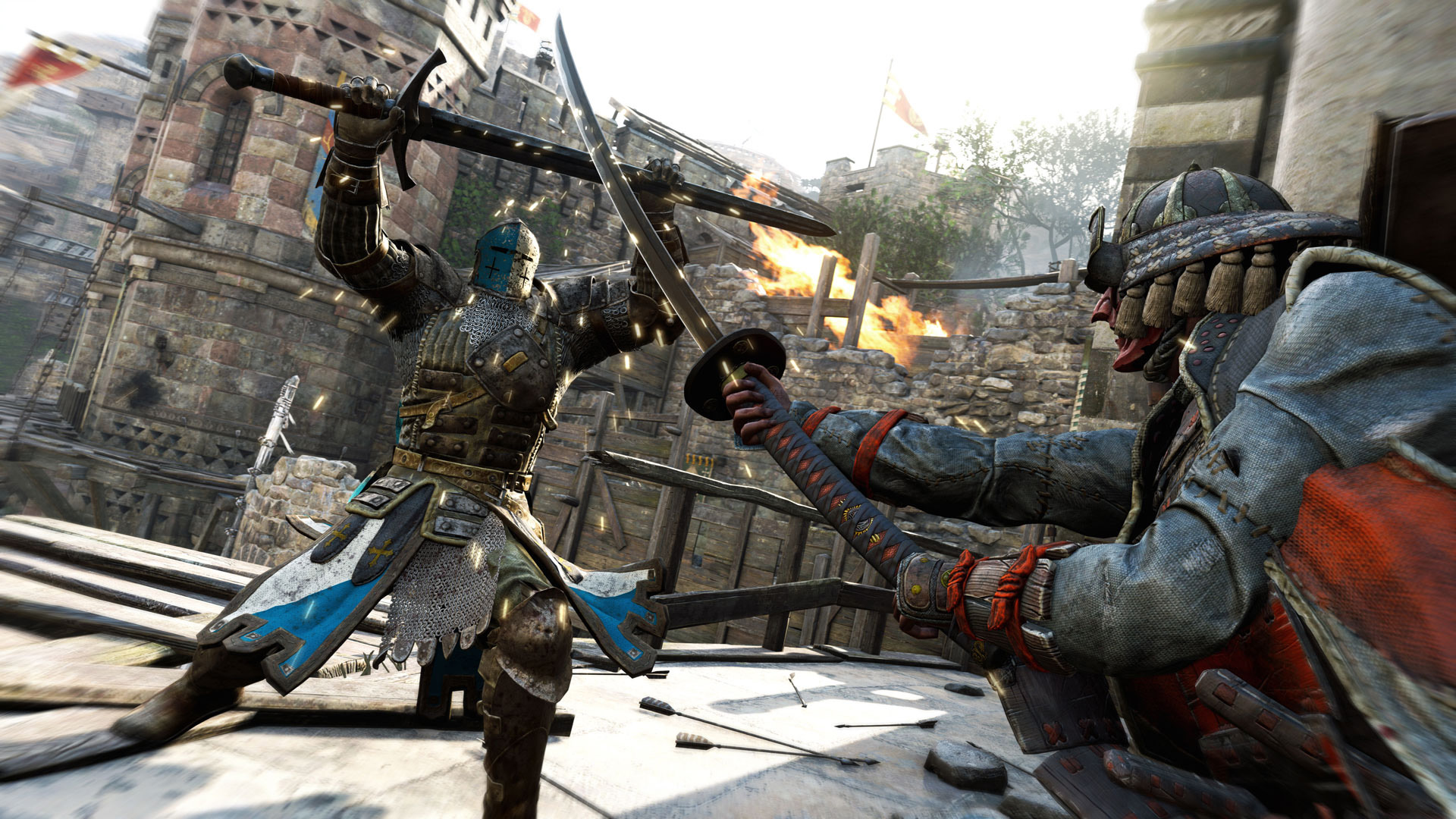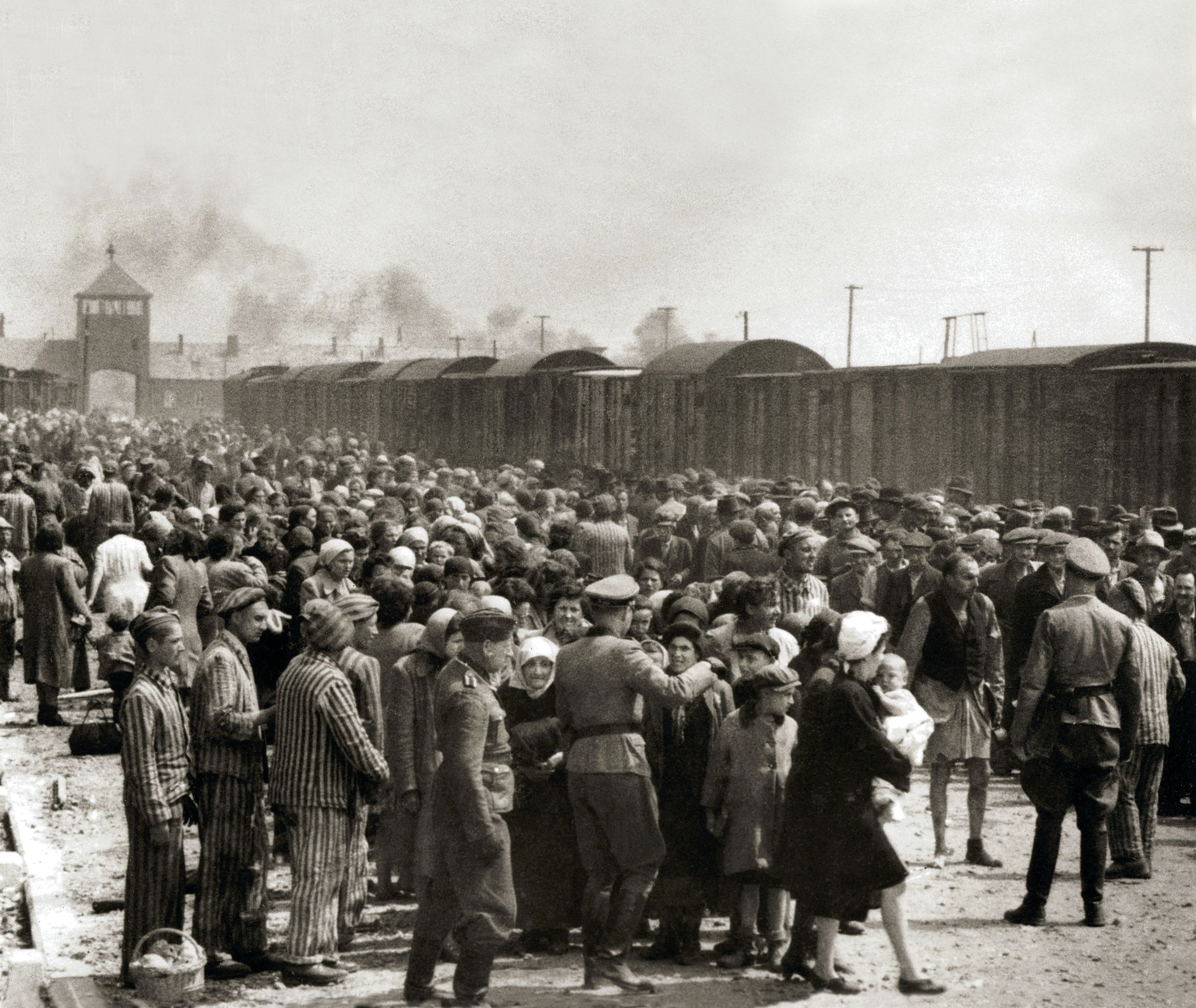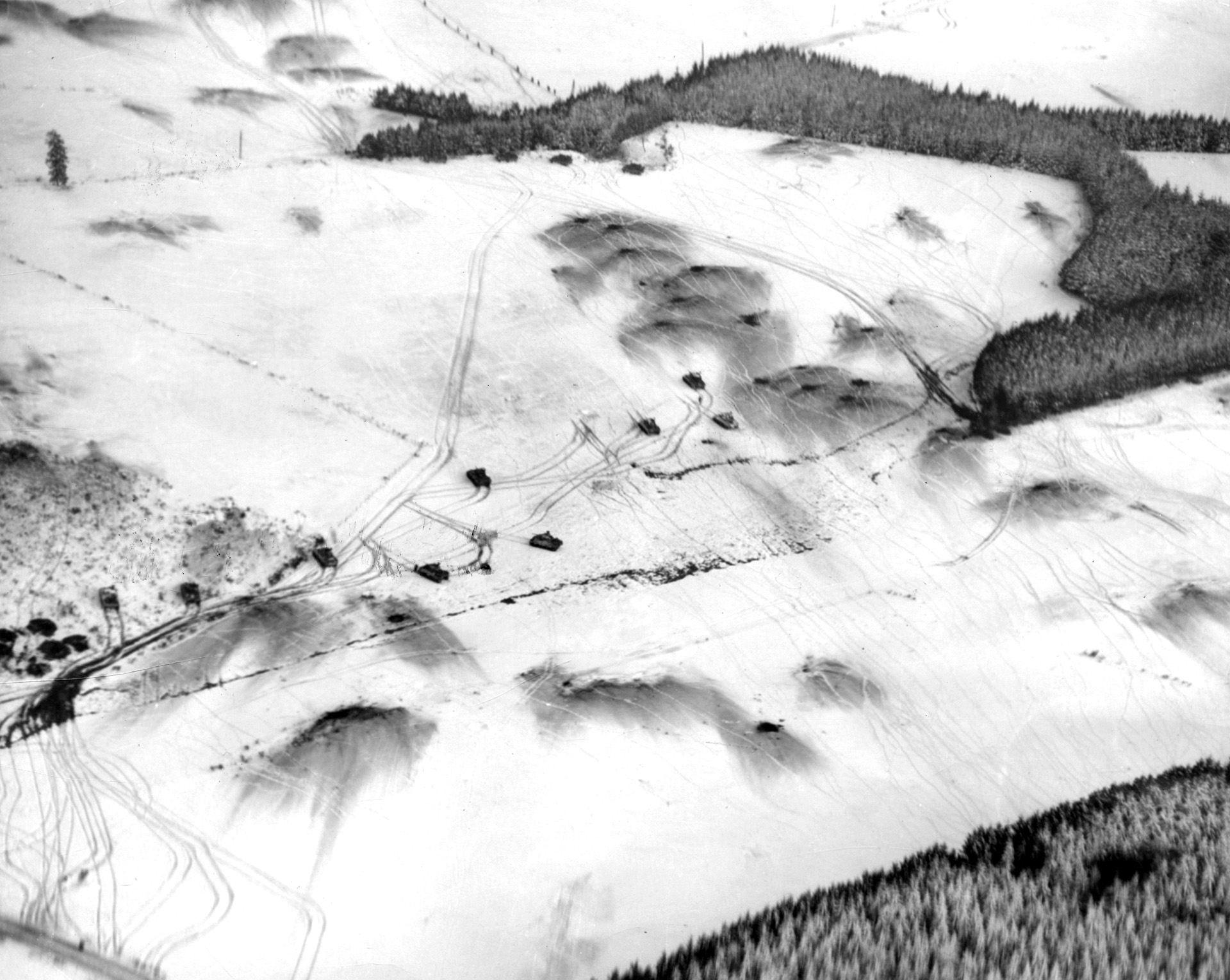By Robert E. Cray
Ireland’s refusal to take part in World War II agitated Winston Churchill during the war’s first months.
German U-boats had been sinking British ships in the autumn of 1939. Irish ports were off limits to British naval vessels although Ireland technically remained in the Commonwealth. At one point the clearly enraged future prime minister (then First Sea Lord) thundered against the Irish government, “Legally, I believe they are at war but skulking,” wondering if Britain should invade Ireland. He blamed Eamon De Valera, Ireland’s prime minister, for keeping his nation enveloped in a cocoon of noninvolvement. Neutrality did not suit Churchill. It did, however, suit De Valera’s purposes very well.
Yet the wily De Valera, a political survivor if nothing else, proved less neutral than he appeared, officially evoking nonbelligerent status while covertly tilting toward the Allies. It was a high-wire political balancing act. Unwanted attention might come from either the Allies or the Axis if De Valera stumbled; both sides wished to exploit Ireland for their own purposes. German and British intelligence agencies each sought openings. What a disgruntled Churchill said mattered little to De Valera. For Dev, as compatriots called him, keeping Ireland out of war mattered far more. “The Emergency,” the Irish euphemism for World War II, required Ireland’s prime minister to do some fancy footwork (not always appreciated by Winston Churchill) but that placed Ireland closer to the Allies’ camp than many people realized.
Eamon De Valera had learned the craft of survival from an early age. American born, his parents’ marital status questionable, De Valera went to Ireland at the age of two, enjoyed sports, and became a teacher. He was also an avowed Irish nationalist. As an Irish patriot in a British colony, De Valera participated in the 1916 Irish Uprising, commanding a company of troops and narrowly escaping execution for his role. A 1917 amnesty set him free. De Valera would weather other crises, some of them from his fellow Irish nationalists and the Irish Republican Army, all part of the maelstrom that embodied Ireland’s turbulent path to free state and later republic status. Ulster in the north remained part of Great Britain. But in the south, Prime Minister De Valera chipped away at British links, refusing to allow Ireland’s former colonial master the use of the Treaty Ports (signed over to Ireland in 1938) for military purposes, further unsettling Churchill.
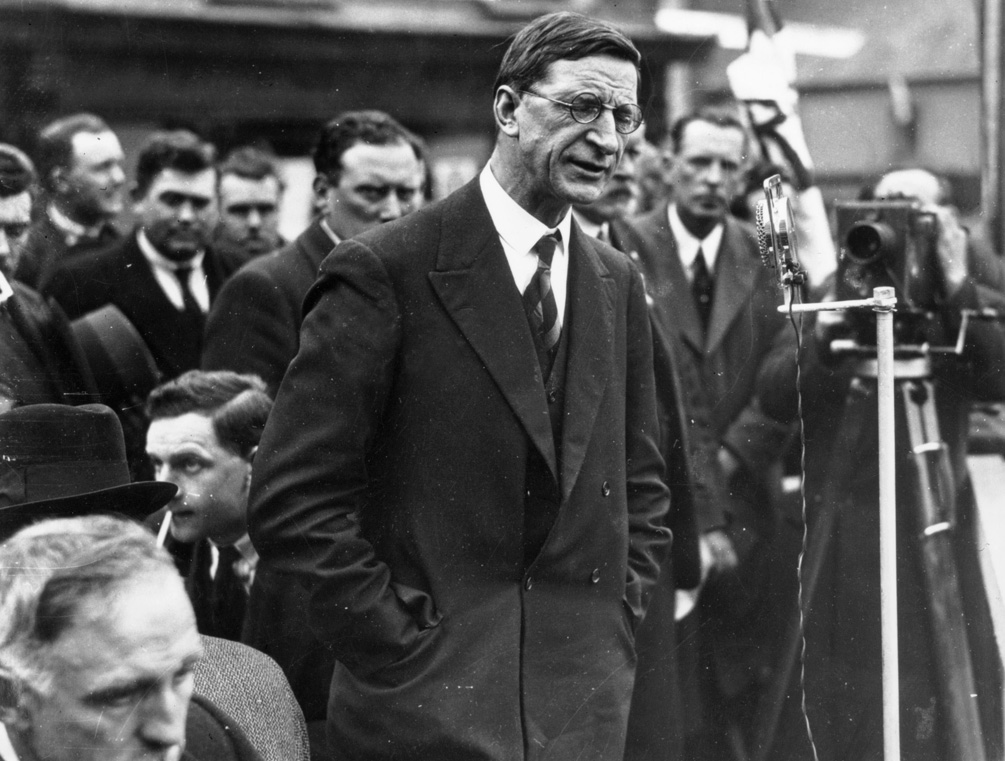
As war approached, De Valera worked to keep Ireland secure and out of harm’s way. The Irish Republican Army (IRA), intent on achieving a unified Irish nation, saw things differently, embarking on a terrorist campaign in 1939 that involved killing British citizens and Irish police officers. Any IRA provocations against Ulster would likely prompt a British response against Ireland, as De Valera well knew. Accordingly, De Valera outlawed the IRA in June 1939. Then, in a daring December raid, the IRA swooped down on the Magazine Fort in Dublin’s Phoenix Park, site of most of the army’s munitions, making off with a million rounds of ammunition and shell casings. Two weeks later a Dublin policeman was shot dead,the work of the IRA again. Could another civil war be brewing?
De Valera adopted more stringent security measures, getting the Dail, Ireland’s parliament, to pass an Emergency Power Act in 1940, allowing individuals to be held 48 hours without trial. He also sealed the northern Irish border and employed 5,000 special police. In Dev’s words, “The policy of patience has failed and is over.”
More problematic were those IRA members who saw Germany as a potential ally in their fight against a wartime Great Britain. In late 1939, the IRA refused to support either “king” or “dictator,” more or less in line with Ireland’s neutral status. By the summer of 1940, the IRA stated, “If German forces should land in Ireland, they will land … as friends and liberators of the Irish people.” A victorious Axis, they believed, would enable Ireland to “achieve absolute independence in the next few months.”
Such statements met with rapid criticism. Although some Irish citizens delighted in Britain’s wartime misfortunes, the overwhelming majority favored neutrality. Irish military intelligence believed the IRA would defend against a British invasion; they also believed the IRA would support the Germans if they landed. As historian Brian Hanley notes, a German occupied Ireland would have made the IRA potential collaborators. Some IRA members would resist, of course. Others might turn a blind eye to fascism, revenging themselves against opponents while becoming little more than Nazi stooges.
Dev’s forceful measures, however, precluded such a possibility, as hundreds of IRA members were swept up under the Emergency Power Act, left to languish in jail or simply interned. Indeed, the IRA’s overblown prose may well have reflected its relative marginalization due to De Valera’s actions. During the war Ireland executed six IRA men by firing squad, interned 500 without trial, and committed another 600 under the Offenses Against the State Act. Dev did not believe in halfway measures.
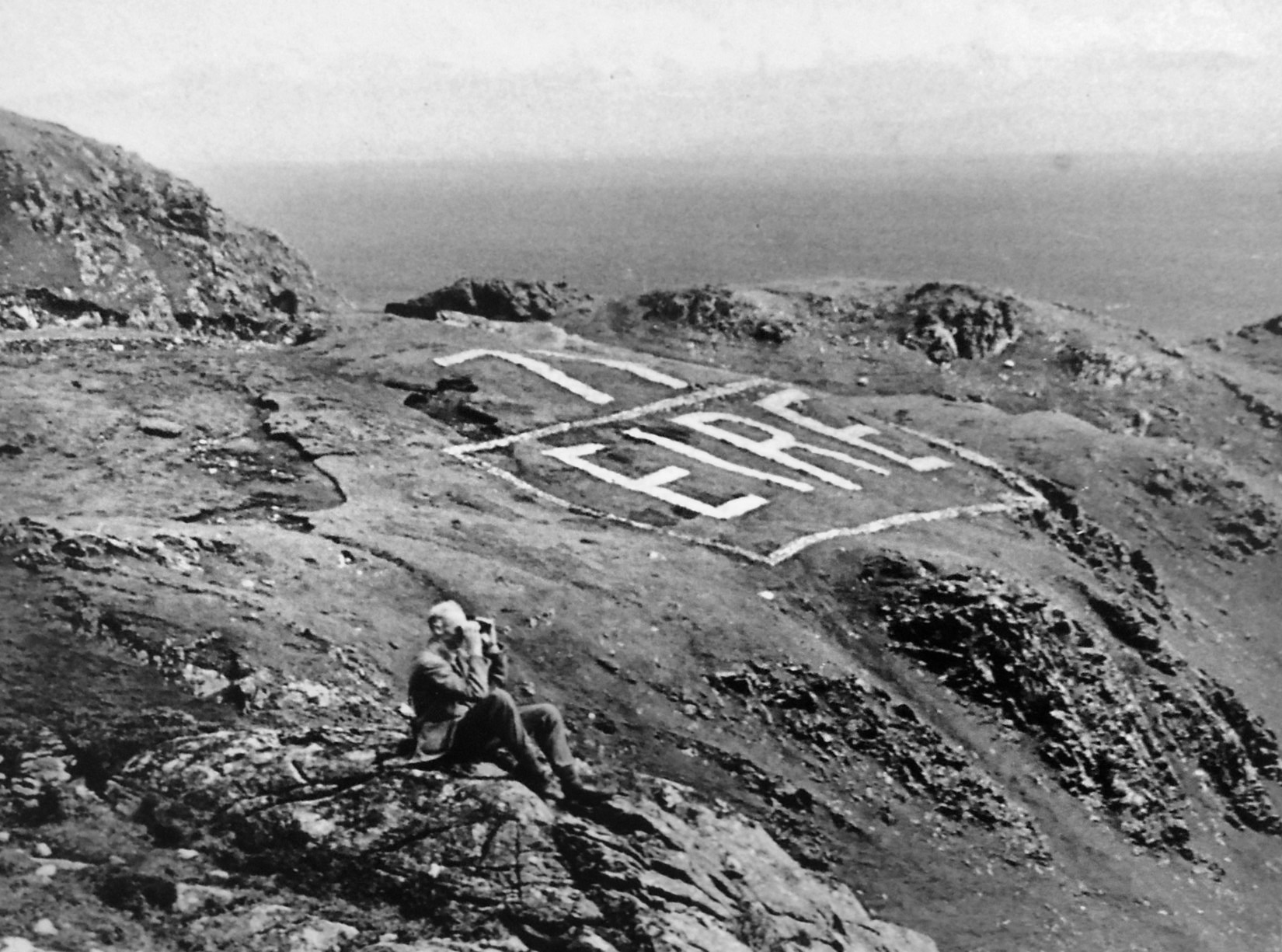
As a neutral nation, Ireland joined the ranks of such countries as Switzerland, Sweden, Spain, and Portugal. Ireland’s small size and its proximity to Great Britain made nonalliance appealing. Nor could Ireland afford to be a wartime target, given its small, poorly equipped army. Perhaps most importantly, the country’s memory of British rule made neutrality a natural extension of Irish identity. Ireland needed to forge its own foreign policy in the world of warring powers, and that made neutrality the best political option.
Nevertheless, Germany did have a legation in Dublin headed by Doctor Eduard Hempel, a cultured career diplomat. Hempel believed, correctly, that Ireland wished to avoid war, something Germany favored provided Ireland’s neutrality favored the Allies and the Axis equally. German spies did on occasion appear in Ireland. One Dr. Hermann Goertz ran from his Dublin home in May 1940; once inside the police discovered a radio transmitter along with 20,000 pounds and papers detailing an airborne attack on Irish military facilities. But Hempel remained a disappointment to German intelligence. Irish intelligence tapped Hempel’s phone, opened his mail, and kept up a steady surveillance. Hempel’s tendency to panic made him a less than ideal man for on the spot intelligence work.
Neutrality did not stop Ireland’s citizens from volunteering in the British Army. Some Irish had fought in specially designated Irish Regiments when part of the British Empire. Now with war close, perhaps as many 60,000 Irish citizens enlisted in the British armed service. Eight earned Victoria Crosses, Britain’s highest military medal, while more than 4,500 died. For English soldiers puzzled by the behavior of people from a neutral nation fighting alongside them, the standard answer Irish recruits gave was, “We know whose side we are neutral on.”
De Valera, however, needed Ireland’s neutrality respected. While he could not physically stop Irish citizens from sailing to Britain, especially the tens of thousands who worked in Britain’s war industries and sent money home, he could insist on certain protocols for Irish recruits in British regiments who returned on leave to Ireland. What did this mean? British uniforms must be discarded before arrival. The British government complied, supplying stores of civilian clothes. Normally, warring soldiers in uniform in and from a neutral nation would create a dilemma. Dev had found a way around the predicament.
Nevertheless, the Irish government used wartime censorship to conceal Irish enlistments in the British Army. No official acknowledgement of their service occurred in newspapers. Bizarrely, even the Irish heredity of Field Marshal Bernard Montgomery, Britain’s famed World War II commander, went unmentioned by the press. Printing obituaries of slain Irish soldiers was forbidden as a matter of course. In fact, this official secrecy about Ireland’s soldiers survived Dev’s life, with the Republic of Eire refusing to recognize its World War II veterans publicly until 1995.
Wartime bombings presented another, greater challenge to Ireland. The German Blitz hammered British cities in the summer of 1940, unleashing aerial bombardment and its attendant horrors upon millions of civilians. Across the Irish Sea, Ulster in Northern Ireland constituted a part of Great Britain and hence a potential wartime target. Adolf Hitler even pondered invading Northern Ireland, suggesting that the campaign be launched on the 25th anniversary of the Easter Uprising of 1916. The invasion never occurred; however, Belfast represented a tempting Luftwaffe target, and 180 planes unloaded 100 tons of bombs on the city on April 15, 1941, killing hundreds. Several weeks later on May 4, another Luftwaffe sortie killed 150 people. De Valera’s neutral Ireland still sent fire brigades across the border to assist. It was, of course, a breach of neutrality, but for Dev assisting fellow Irish even in a partitioned Ireland was more important.
Eamon De Valera had warned his countrymen that war was close to their borders. In a February 1941 radio speech he suggested that Dublin might have to be evacuated. It would be too difficult to provide deep underground shelters, he believed, so women and children must be prepared to go to the countryside. When Irish guards arrested a parachuting German in March, De Valera reiterated the danger of invasion, musing, “Would to God we had a quarter million men armed and equipped. Then the danger would be lessened.” On April 14, 1941, the 25th anniversary of the Easter Uprising, he again proclaimed that Ireland would defend itself if its neutrality was threatened, warning it would “mean suffering and death for many.”
If the Irish Republic thought neutrality and strong language protected it from the Luftwaffe, it failed to reckon with war’s cruel ambiguities. Aerial bombardments might miss targets and bombers might be led astray. In early January 1941, German bombs accidentally fell on a Dublin suburb, perhaps due to the plane lightening its bomb racks for the return trip home. Several people were killed. Far more serious was a May 30 incident when the Germans mistook Dublin for a wartime target after the British jammed their radio signals. Thirty-four Dubliners died while flames engulfed the city. Ireland refused any offer of firefighting assistance from Belfast, but De Valera sent a strong letter of protest to Germany. Some people thought Hitler was sending Ireland a message: stay neutral or else.
Such crises notwithstanding, Dev kept Ireland officially out of the conflict. Many in the United States and Great Britain decried this stance, unaware that Dev bent the rules to favor the Allies. British intelligence could depend on steady information from their Irish counterparts. Ireland sent Britain meteorological updates that benefited the Royal Navy and Royal Air Force. British overflights into Irish airspace, along with British use of Shannon airport, were conveniently overlooked by the Irish government. Downed RAF pilots who ended up in Ireland were sent to Northern Ireland. German pilots did not have that option.
Private efforts cloaked by official secrecy kept Ireland’s identity as a neutral nation secure before the public. What people did not know (or guess) preserved Ireland’s nonbelligerent status in accord with Dev’s desires. Of course, critics existed, even in the United States, where a majority of Irish Americans thought Ireland should allow the Allies the use of the naval bases and should enter the war. Ireland’s ambassador to the United States, Robert Brennan, made the case for Ireland’s neutrality in 1943, blasting rumors that German submarines refueled in Irish ports while their crews allegedly received warm welcomes in obscure rural hamlets.
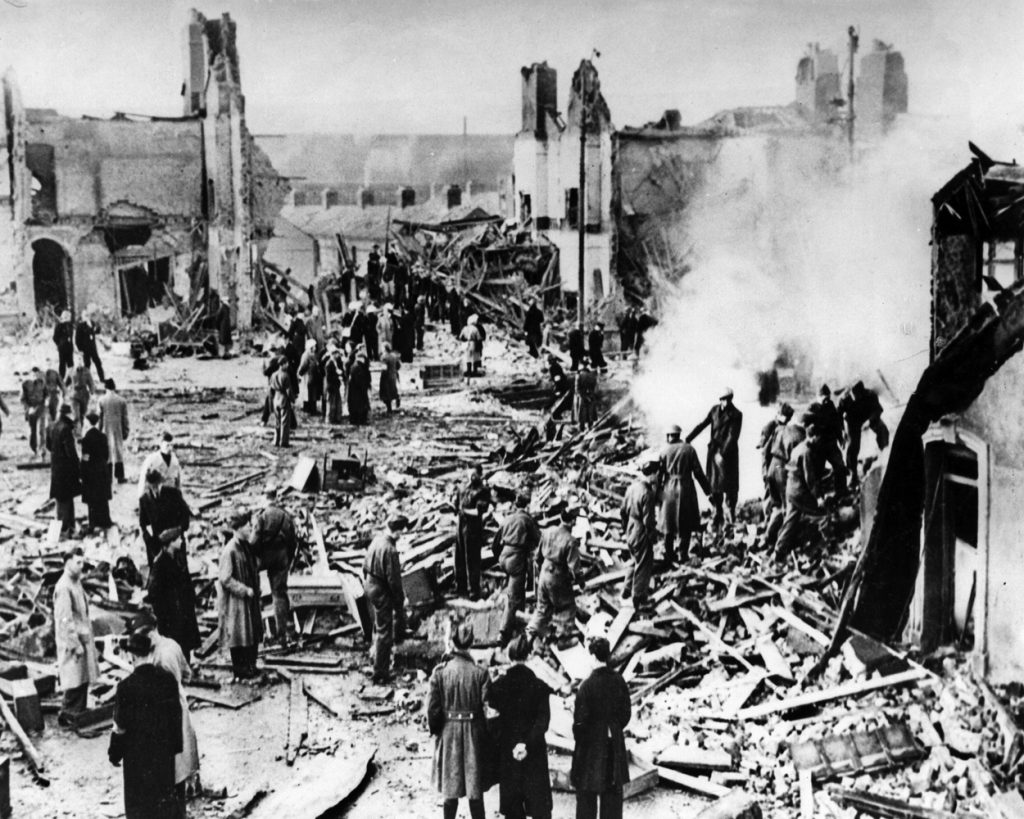
As the war swung in favor of the Allies by 1943, the threat to Ireland from the Axis accordingly lessened. Irish residents more or less went about their daily lives, aware of the “Emergency” beyond their border, but shielded from the worst horrors. De Valera’s policy had won their support despite the occasional critic’s carping.
The Thousand Year Third Reich, as Hitler once proclaimed it, tottered close to collapse by the spring of 1945. With Allied forces pressing across the Rhine, having beaten back the final Nazi push in the Battle of the Bulge, and the Soviets targeting Berlin, the end was in sight. Even Adolf Hitler down in his Führerbunker could see that reality. An April 20 birthday party witnessed a battered Hitler greeting a group of Hitler Youth impressed into a last-stand fight for Berlin. It was the last film clip of Hitler’s career. By April 29, Hitler married his long-term mistress, Eva Braun. On April 30, he committed suicide, shooting himself in the head and biting down on a cyanide capsule. SS guards doused Hitler’s and Braun’s bodies in gasoline and ignited the remains.
News of Hitler’s death traveled fast. The man who enflamed Europe had, fittingly enough, been immolated. The war in Europe was winding down. But in neutral Ireland, Eamon De Valera insisted on paying a visit to the German legation still headed by Dr. Hempel. Previously, De Valera visited the U.S. legation to express condolences to President Harry Truman upon word of Franklin D. Roosevelt’s death. Now, apparently, De Valera thought diplo-matic protocol demanded the same for the dead Führer. De Valera claimed the visit had no special significance, although he later admitted privately that he should have been “unavailable.” At the time, however, De Valera thought Dr. Hempel, who had always behaved diplomatically, merited the courtesy. As Dev said, “I certainly was not going to add to his humiliation in the form of affront.”
De Valera found the whole episode on May 3 incredibly em-barrassing. Dr. Hempel, accord- ing to his wife, felt crushed and humiliated by Hitler’s suicide—better he had died fighting than by his own hand. The Irish prime minister heard Dr. Hempel blabbering, “It’s all so humiliating; it’s all so humiliating.” Accompanied by Joseph P. Walshe, secretary to the Department of External Affairs, Dev wondered about the so-called German stoicism, a stereotype now proved false by the doctor’s emotional outburst. The two Irish officials left after a brief time.
The firestorm against De Valera did not take long. That the Irish prime minister visited Hempel’s home, not the legation, some individuals interpreted as a bit of De Valera-like Machiavallianism, an overly artful way to suggest that the visit was not really official. They were not convinced. Newspapers berated the gesture. In fact, U.S. newspapers may have devoted more space to De Valera’s visit than to any of his other wartime policies or gestures.
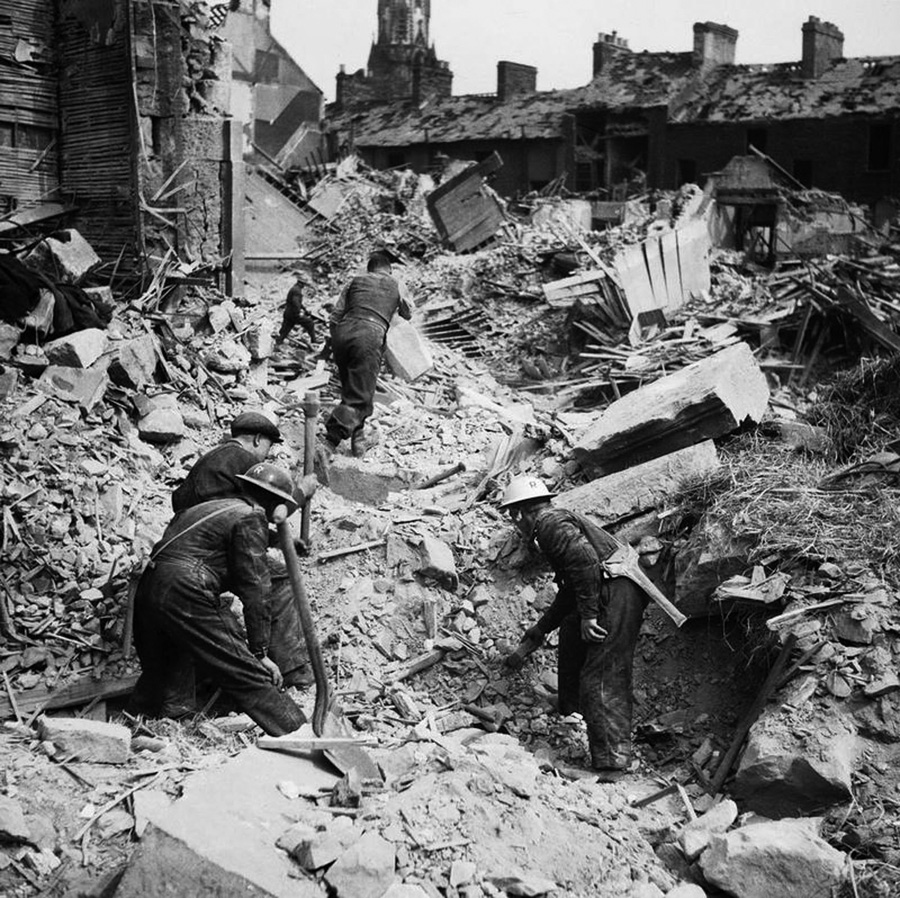
The New York Times thought De Valera’s insistence on making the visit remarkable, “considering the character and the record of the man [over] whose death he was expressing grief. There is obviously something wrong with the protocol, the neutrality, or Mr. De Valera.” The Times did not add that Allied armies had discovered the true meaning of Hitler’s Final Solution by early May, evidence of the concentration camps horrifyingly visible. Historian Jarrold M. Packard later summed up the evidence and judged De Valera’s action to be diplomatically correct but still a “morally idiotic act.”
Eamon De Valera wrote privately to Ambassador Brennan in the United States, aware of the mounting furor he had created. Even so, De Valera stood by his reasoning—to do otherwise, he believed, would have been an “unpardonable discourtesy to the German nation.” That the German nation had been led by a fascist dictator engaged in crimes against humanity failed to register. One could quibble and note that at least De Valera had not ordered the Irish flag lowered to half mast in mourning, as Portugal did for two days upon news of Hitler’s death, but Dev’s gesture as the head of a nonfascist nation proved unsettling.
Eamon De Valera scored a measure of redemption after Winston Churchill berated the Republic of Eire and by extension its prime minister in his victory speech of May 13, 1945. Churchill praised Northern Ireland and touted Britain’s restraint toward De Valera’s Ireland; indeed, if not for Ulster, Churchill noted, he might have invaded southern Ireland. As it was, Britain respected Ireland’s neutrality, which “left the De Valera government to frolic with the Germans and later with the Japanese representatives to their heart’s content.” It was a rhetorical savaging. How would De Valera respond?
On May 16, De Valera delivered a radio address. The streets were quiet, but the pubs and dance halls were crowded with people listening to the wireless. Dev turned the tables on Churchill, citing Ireland as a small nation that retained its values while resisting aggressors for centuries, a backhanded slap at its former imperial British master: “There is a small nation that stood alone not for one year or two, but for several hundred years against aggression; that endured spoliations, famines, massacres, endless succession; that was clubbed many times into insensibility, but that each time on returning to consciousness took up the fight anew; a small nation that could never be got to accept defeat and has never surrendered her soul.”
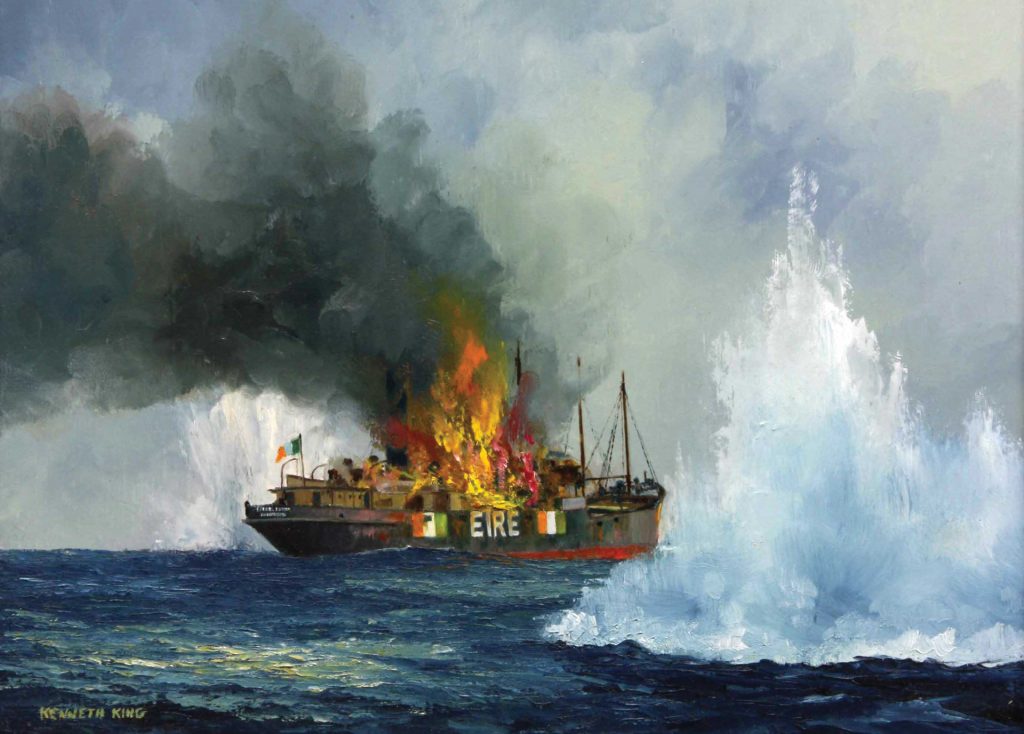
Listeners across Ireland responded with cheers. Others nodded thoughtfully. Dev had struck the right tone. The often critical Irish Times saluted De Valera as a gentleman. Even people opposed to Dev’s German legation visit found his speech the appropriate riposte to the British. In the war of words, Dev had scored a victory.
Churchill had nothing to say publicly about the matter, a rare thing for him. Shortly thereafter, a Labour Party victory ushered Churchill out of Number 10 Downing Street, his Tory Party swept from power. De Valera would remain as Ireland’s prime minister, his citizens still behind him.
First-time contributor Robert E. Cray is a member of the history department faculty at Montclair University in New Jersey.
